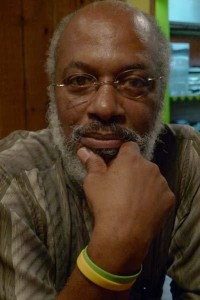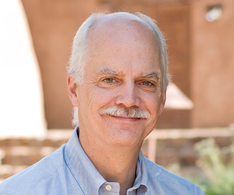At a January 29 ceremony, Yale University’s Gilder Lehrman Center for the Study of Slavery, Resistance, and Abolition recognized a “profoundly original” work by Trinity’s Christopher Hager, associate professor of English, with the 16th annual Frederick Douglass Book Prize. Word by Word was selected last fall from a field of over 90 books about slavery, resistance, and/or abolition.

Gilder Lehrman Center Director David W. Blight (Right) presents Christopher Hager with the Frederick Douglass Book Prize. Photograph by Don Pollard Photo.
In Word by Word: Emancipation and the Act of Writing, Hager studies the various writings of everyday slaves, including letters, diaries, and petitions by freedmen. Through them, he examines the relationship between literacy and freedom. For his research, Hager was awarded a grant from the National Endowment for the Humanities in 2009.
“Christopher Hager’s Word by Word presents a profoundly original, illuminating approach to reading texts by and about enslaved African Americans,” the jury said of their choice for the $25,000 prize.
“The emancipation of American slaves was not only a social and political revolution but also a singular moment in the history of written expression,” Hager said. “Untold thousands of African Americans who had been deprived of literacy gained unprecedented access to education at the same time they achieved their freedom.”
Other finalists for the prize were Camillia Cowling’s Conceiving Freedom: Women of Color, Gender, and the Abolition of Slavery in Havana and Rio de Janeiro and Alan Taylor’s The Internal Enemy: Slavery and War in Virginia, 1772–1832. Word by Word was also a finalist for the 2014 Gilder Lehrman Lincoln Prize.
“The Frederick Douglass Prize was conceived to encourage and enrich the study of slavery,” said Hager while accepting the award. “This year we celebrate the sesquicentennial of the 13th amendment, but even 150 years after slavery was formally abolished, many of the central concerns of slavery studies remain all too current—from racism and the exploitation of labor to the definition of freedom and citizenship.”













